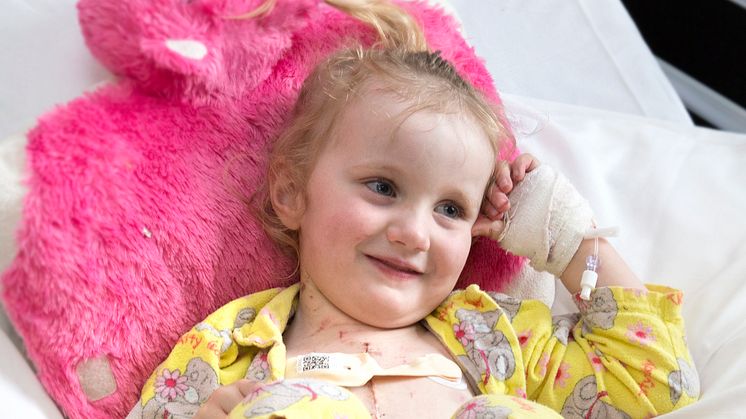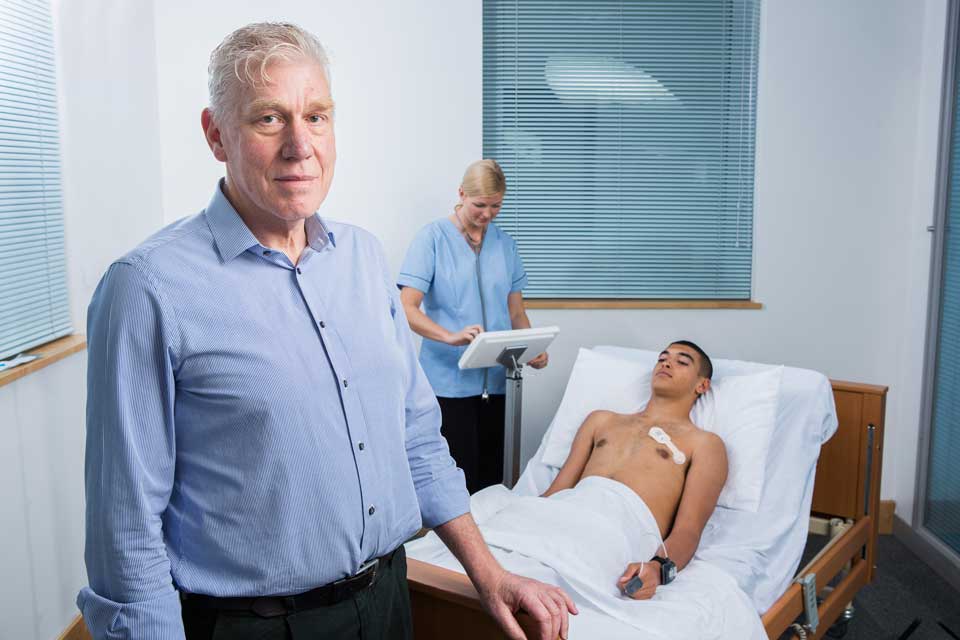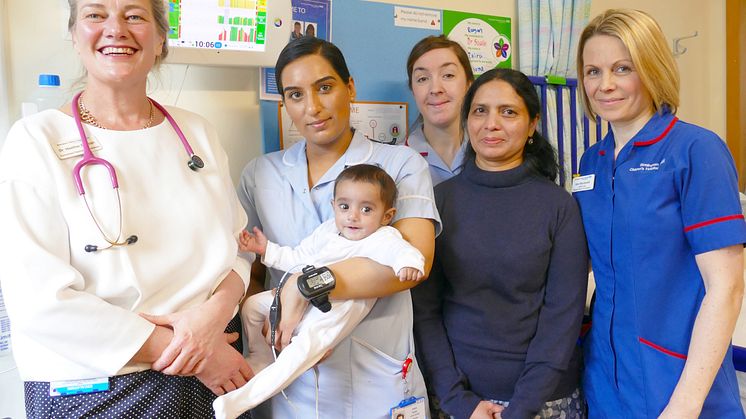
News -
Isansys: wireless technology helps to save children’s lives
Vital signs of seriously ill young patients at Birmingham Children’s Hospital are being monitored continuously in real time with wireless sensors developed by Abingdon business Isansys Lifecare Limited.
The sensors include the Lifetouch, a small bandage-like strip that can be fixed to the patient. It is wireless and continuously transmits the child’s heart signs.
It means the child does not need to be physically hooked up to a monitor and is free to play or be held by parents. The data is delivered to Isansys’s Patient Status Engine, from where it is sent to the analysis system and held as an electronic patient record.
Critically, it can deliver an early warning sign of a child’s deterioration and allow doctors to intervene earlier than they might otherwise have been able to – potentially saving lives or shortening hospital stays.
Dr Heather Duncan, a consultant at Birmingham Children’s Hospital, said:
We don’t want any unavoidable cardiac arrest or death in hospitalised patients. Fortunately, those events are rare but we need to extend our monitoring to capture those events. It could be the difference between life and death.
If you ask the children, they want wireless monitoring. They don’t want to be wired up. They want to walk around, they want to go to school, go to the playroom, go to the canteen, they want to be really mobile.
Watch other Innovate UK success stories
Changing the face of healthcare
The company’s Lifetouch sensor and Patient Status Engine are part of a £1.8 million project, called RAPID, (Real-Time Adaptive & Predictive Indicator of Deterioration) funded by the Health Innovation Challenge Fund being undertaken in collaboration with the hospital and with McLaren Applied Technologies, Aston University and the University of Birmingham.
Wireless monitoring could have wide applications across the NHS. It could help to save money currently spent on expensive monitors and allow more patients to be treated at home.
The large amounts of patient data it provides could help researchers to find new and better treatments for a wide variety of conditions.

Keith Errey, chief executive and co-founder of Isansys, oversees a demonstration of the company's wireless patient monitoring system
Isansys developed a prototype of the Lifetouch sensor for paediatric use with the help of a £100,000 Smart award from Innovate UK in 2012.
It has also won a £1 million SBRI (Small Business Research Initiative) contract to further develop the Patient Status Engine for the NHS.
Keith Errey, chief executive and co-founder, said:
Isansys isn’t just a technology company and we’re not just making medical devices here. We’re creating a platform and a service model that will change the face of healthcare as we see it.
The exciting thing is, the more work we do on this, the more we recognise how important and profound this new data-driven approach to healthcare is.
The Minister for Life Sciences George Freeman said the project was a great example of joined-up government between Innovate UK and the Department of Business Innovation and Skills and the Department of Health.
He added:
"These technologies have the potential to help the system bring benefits to more and more patients so fewer people have to go to hospital, have to queue, and have to go through the system.
We can develop more healthcare from home, more telemetry, more Skype, more wireless and allow patients with non-acute conditions to be monitored more conveniently and to take more responsibility for their conditions."
